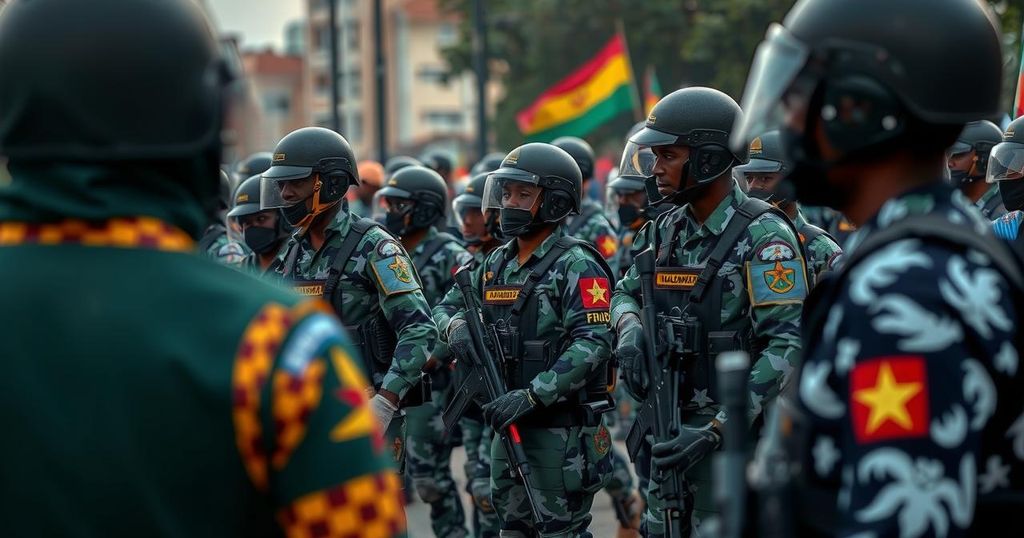Mozambique’s Political Turmoil: Tragic Deaths Highlight Crisis After Elections

Mozambique is experiencing a severe political crisis following the controversial presidential election results that have sparked widespread protests. The shooting of teenager Antonio Juaqim during a demonstration against the ruling party’s victory has led to an escalation of violence, with reports indicating at least 40 fatalities, including children. Opposition leader Venâncio Mondlane’s allegations of electoral fraud have intensified public dissent, raising serious concerns about political repression and human rights in the country.
In Mozambique’s capital, Maputo, the atmosphere is mournful and tense following the tragic shooting of 16-year-old Antonio Juaqim during a protest against the recent presidential election results. His uncle reported that CCTV footage captured police firing on demonstrators. This incident is symptomatic of the political unrest that has persisted after the ruling Frelimo party declared victory with 71% of the vote, sparking allegations of electoral fraud from opposition leader Venâncio Mondlane, who has since fled. A wave of nightly protests, characterized by citizens banging pots and pans, has emerged in response to the disputed election, though many are now forced to protest within their homes due to fear of police violence.
At Antonio’s funeral, emotional tributes highlighted the loss of innocence and promise among the youth, with multiple reports citing that at least forty individuals have been killed in these protests, including ten children. Police, while expressing condolences, have attributed the violence to Mondlane’s supporters, alleging that protesters used children as shields. Many activists and observers, however, accuse the police of employing excessive force to suppress dissent. Global organizations such as Human Rights Watch have brought attention to these escalated clashes, describing the scale of violence as unprecedented in Mozambique’s recent history.
The political landscape in Mozambique is undergoing significant and distressing changes. As Frelimo maintains control despite waning popularity, the youth in particular are increasingly disillusioned, seeking economic opportunities beyond the legacy of past independence struggles. The current unrest marks one of the most critical junctures for the nation since its transition to multi-party democracy nearly three decades ago, raising pressing questions about governance, civil rights, and the future trajectory of this southern African state.
The political turmoil unfolding in Mozambique stems from the October presidential elections, where the ruling Frelimo party, having governed since the country’s independence, reported a sweeping victory. Opposition claims of electoral fraud have incited public demonstrations, particularly among the youth disenchanted with the current governance. The violent suppression of dissent has raised alarm internationally, spotlighting the deepening crisis in a country that is grappling with a historical legacy of conflict and a pressing demand for socio-economic reform. As protests erupted post-election, the response from security forces has been criticized for its aggressiveness, resulting in the tragic deaths of several individuals, including minors. This situation has highlighted discrepancies in the political narrative and the urgent concerns of Mozambique’s citizens, particularly regarding their future and governance.
The crisis in Mozambique reflects a deep and unsettling divide between the ruling party and its discontented populace, particularly the youth driven by aspirations for better economic opportunities. The tragic losses witnessed during the protests underscore the urgent need for dialogue and reform in governance to address the grievances of the citizens. The international community must remain vigilant and engaged to support Mozambique in navigating this tumultuous period, ensuring that basic human rights and political freedoms are upheld.
Original Source: www.bbc.com







